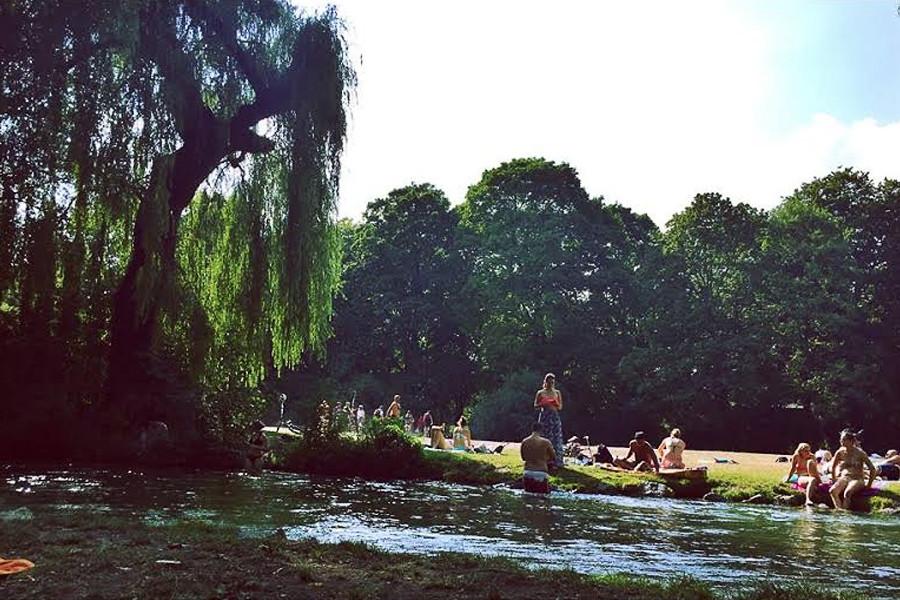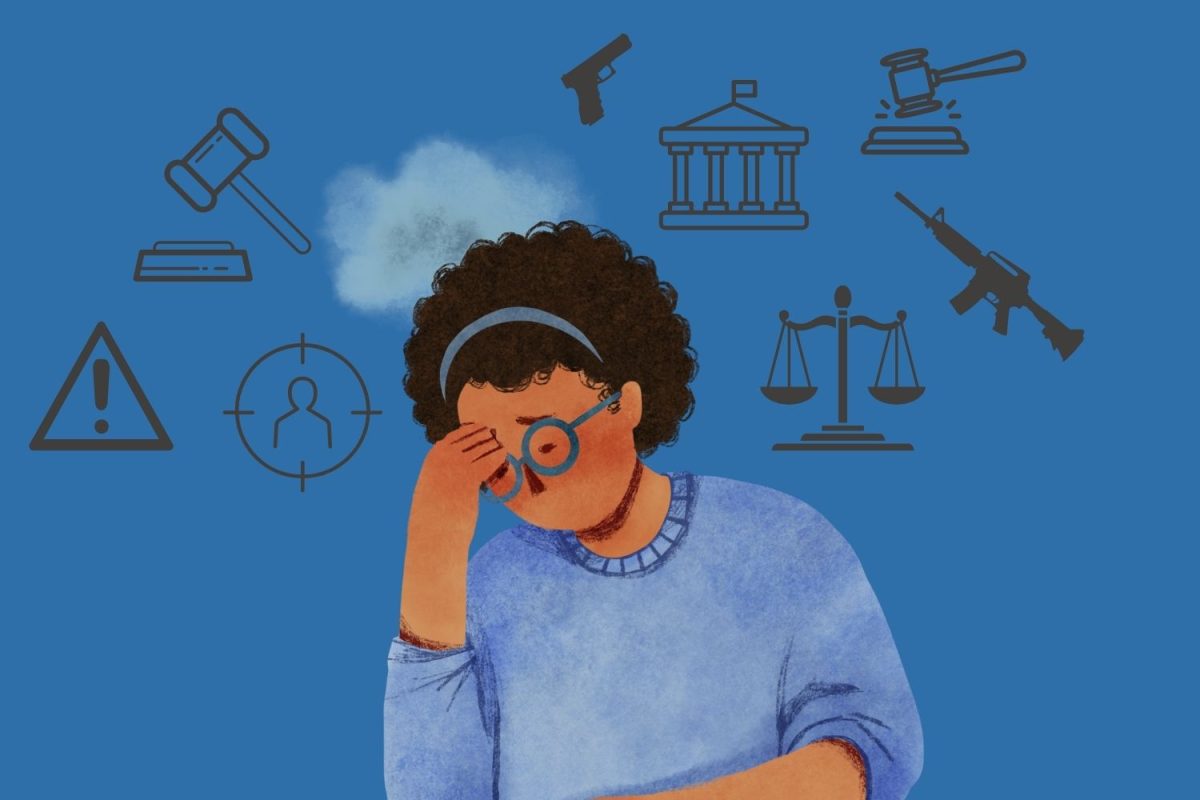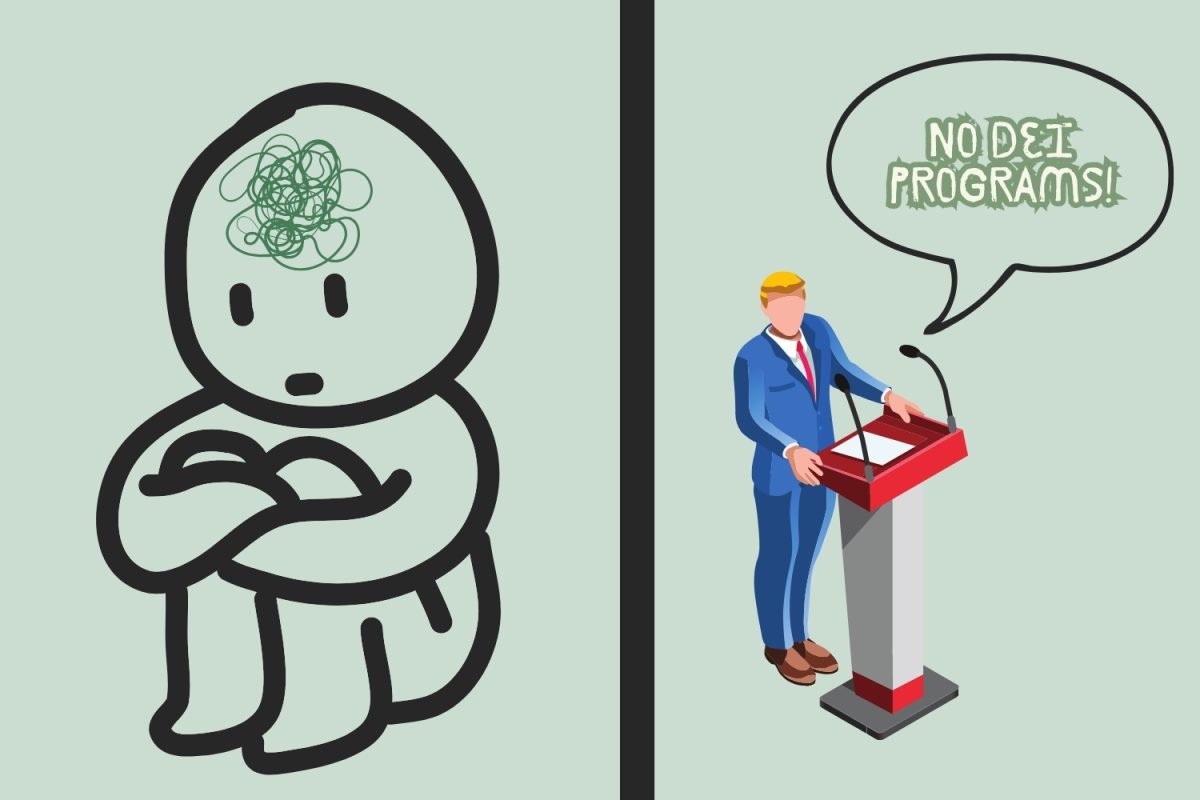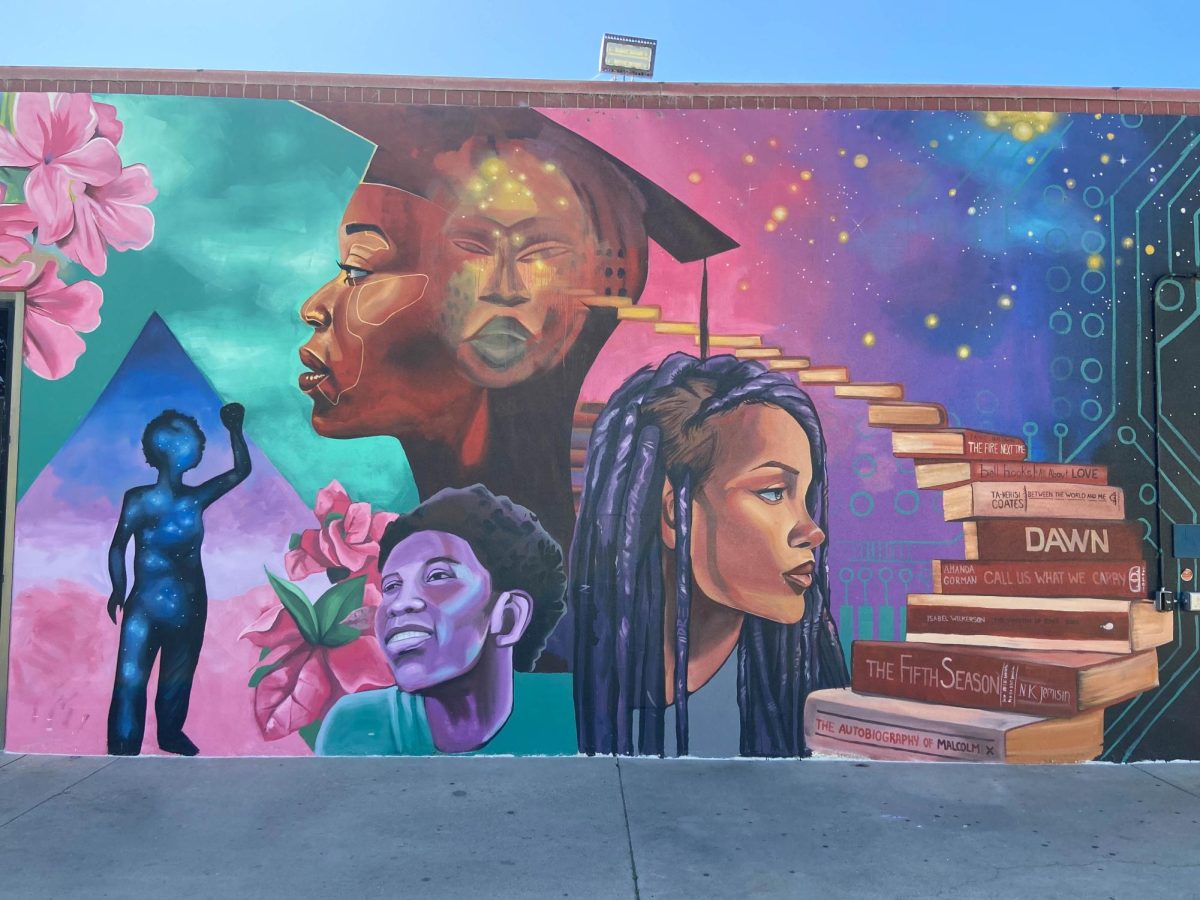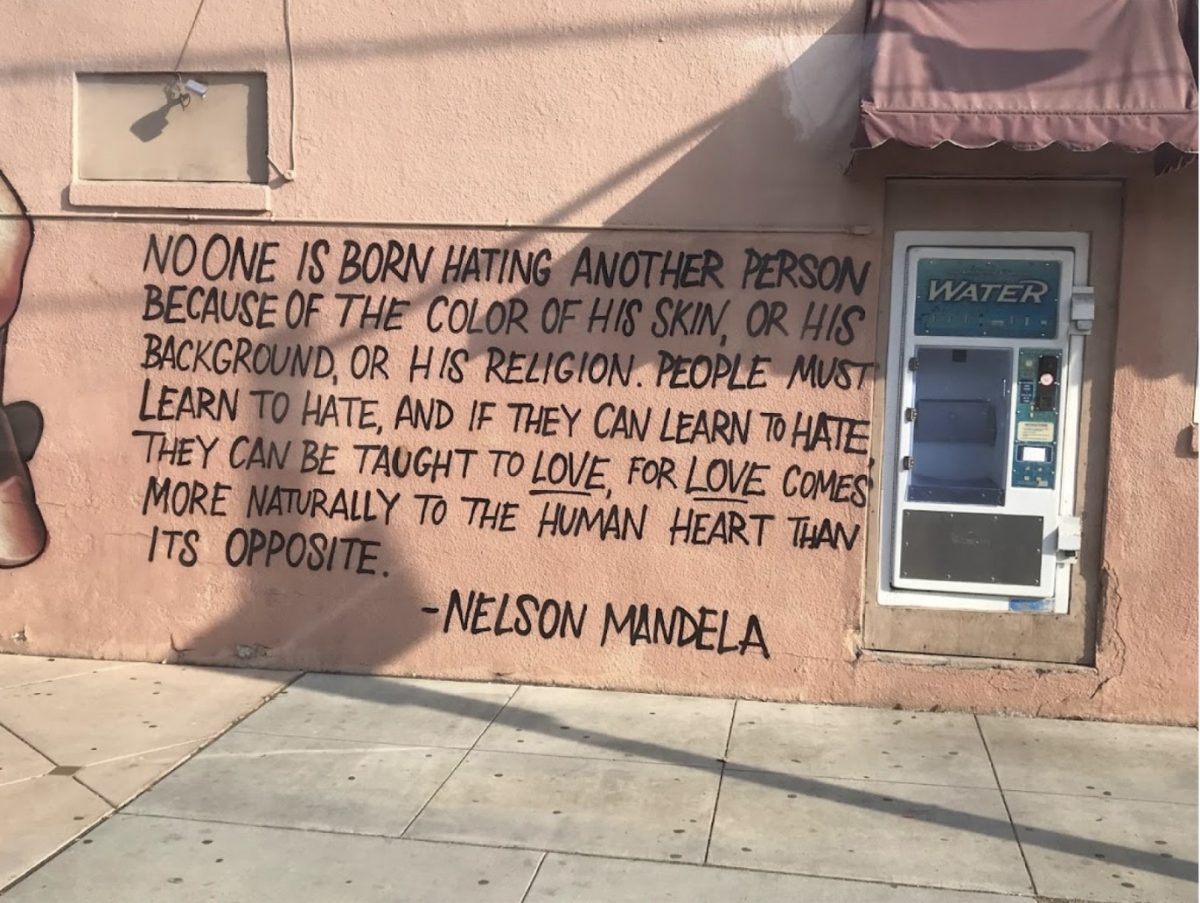I sat with my notebook and pen, on a blanket next to the Eisbach River that flows through the English Garten in Munich, Germany. Chatter drifted around me, the languages foreign but not isolating.
Instead, I felt connected. The crystal clear water flowed patiently, while the sun softly bathed the leaves of a willow tree in a warm, golden light.
Bikes rolled peacefully past on a bridge, and an elder man sold gelato from a little blue stand.
During my travels through Europe, I came across an amazing bookstore in Paris called Shakespeare and Company. There I picked up “Letters to a Young Poet” by Rainer Maria Rilke. He wrote about the beauty and necessity of solitude.
“If you will stay close to nature, to its simplicity, to the small things hardly noticeable,” Rilke wrote, “those things can unexpectedly become great and immeasurable.”
At an intersection of nature and humans, I sat observant.
My body and senses provided me with a familiar home, in which the smallest experiences became beautiful and important.
“Your solitude will be a support and a home for you, even in the midst of very unfamiliar circumstances,” Rilke explained. “And from it you will find all your paths.”
After growing up with family hardship, I had spent too much time searching for certainty and affection from everyone else.
Yet while traveling, the language barrier forced me to spend more time inside my head. It allowed me to find peace simply in my own being.
In Germany, I watched a movie that also expanded upon my realizations, called “Into the Wild.” It tells the story of Chris McCandless, a young adult who was fed up with the materialistic and abusive world of his parents, so after graduating college he left to travel through America with no identification or money. He didn’t even tell his family.
That night I stayed up for hours after the movie ended. I understood his disillusionment, his desperation to find something that gives every day meaning. He left to find a way to feel alive, but tragically, he died of starvation at only 24 years old in the Alaskan wilderness.
His story helped me see how critical it is to move on. He ran so far from his dysfunctional family that he ended up alone in the wild, having never mended things with his parents. He was frozen, and he never reached the place in life where we must learn how to forgive.
I decided that it was time for me to reach that point, and that meant trying to understand how to forgive. It meant realizing that I do have the power to change my life now, I’m not a helpless child anymore.
The movie and Rilke’s book both fueled my renewed motivation to work hard in school, as the only key to change is through knowledge. Remaining in the mindset of a victim meant staying disempowered.
To change is hard and requires perseverance every day. Sometimes, I just want to rest. But there is no finish line, as I will always try to improve myself. Rilke addressed this too.
“Do you remember how this life of yours longed in childhood to belong to the grown-ups? I can see that it now longs to move on from them and is drawn to those who are greater yet,” Rilke wrote. “That is why it does not cease to be difficult, but also why it will not cease to grow.”


